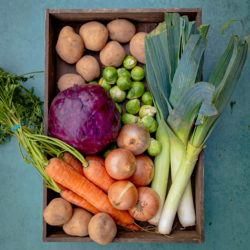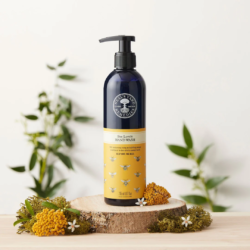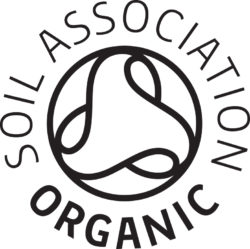Organic: is it better for you?
In a time when prices are rising, and many are taking a little longer when considering their spending, you may understandably be weighing up the importance of buying organic. We’re taking a closer look at organic food and products for a better understanding of how organic can help to support a healthy lifestyle.
The way organic food is produced affects its quality
First of all, a little bit about organic: research has shown that organic food is nutritionally different. This is largely due to the way it is produced – with fewer pesticides, no artificial fertilisers, colours or preservatives, and with the highest standards of animal welfare, meaning no routine use of antibiotics and animals that are free to graze and roam.
Organic food is nutritionally different

Did you know that switching one or two items to organic in your shop could increase the levels of beneficial omega-3 fatty acids and immune-supporting antioxidants in your gut?
Research at Newcastle University* found significant nutritional differences between organic and non-organic farming. They concluded that:
- Organic milk and meat contain around 50% more beneficial omega-3 fatty acids than non-organic. These nutritional differences also apply to organic dairy like butter, cream, cheese and yoghurt. The difference in Omega 3 is because organic animals eat a more natural, grass-based diet, containing high levels of clover, which is used to fix nitrogen on organic farms, replacing chemical fertiliser.
- Organic meat had slightly lower concentrations of two saturated fats, and organic milk and dairy were found to contain slightly higher concentrations of iron, Vitamin E and some carotenoids.
- Organically produced crops (cereals, fruit and vegetables) were found with up to 68% more antioxidants than non-organic, whilst organic fruit and veg contained lower concentrations of pesticides and the toxic heavy metal cadmium.
Health and bodycare products are just as important
When we talk about organic, we often think about groceries, but it’s equally as important to take organic into account when choosing health and bodycare products. Many common ingredients in personal care have a negative effect on our hormones and skin’s microbiome.
There are many ways you can support your health with the products you use. Opting for products with simple, uncomplicated ingredients lists is always better for the skin’s microbiome. Parabens, 4-Methylbenzylidene Camphor, Phthalates, Oxybenzone and Triclosan are unnecessary, hormone disrupting chemicals found in common personal care products. You won’t find them in Soil Association certified products.
Amphora Aromatics, Neal’s Yard Remedies, Green People and Herbfarmacy are just some of the certified brands that we stock. You’ll find the Soil Association logo on their products.
It’s better for nature

The Soil Association’s organic standards are the highest in the UK for animal welfare, and when it comes to the food, there are no artificial colours, preservatives or hydrogenated fats. As a result of producing food in this way, we know there is up to 50% more biodiversity on organic farms and that organically-managed soils store twice as much carbon.
Supporting a healthy lifestyle with organic
Whether you’re aiming to shop entirely organic, or you’re trying out swapping one or two items of your shop to organic, both are great ways to support a healthy lifestyle. So next time you’re doing your shop, look for the organic logo. Enjoy feel-good food that’s better for nature and the planet – happy days!
*The research in this blog came from a meta-analysis conducted by researchers at Newcastle University in 2016 provided by the Soil Association.
Tags: #chooseorganic, Organic


